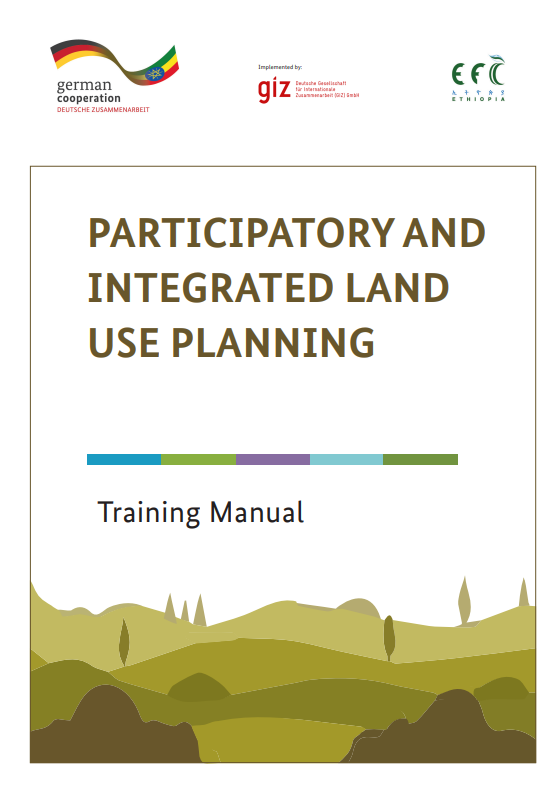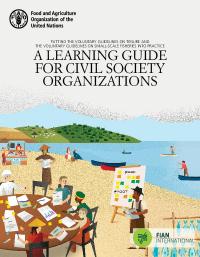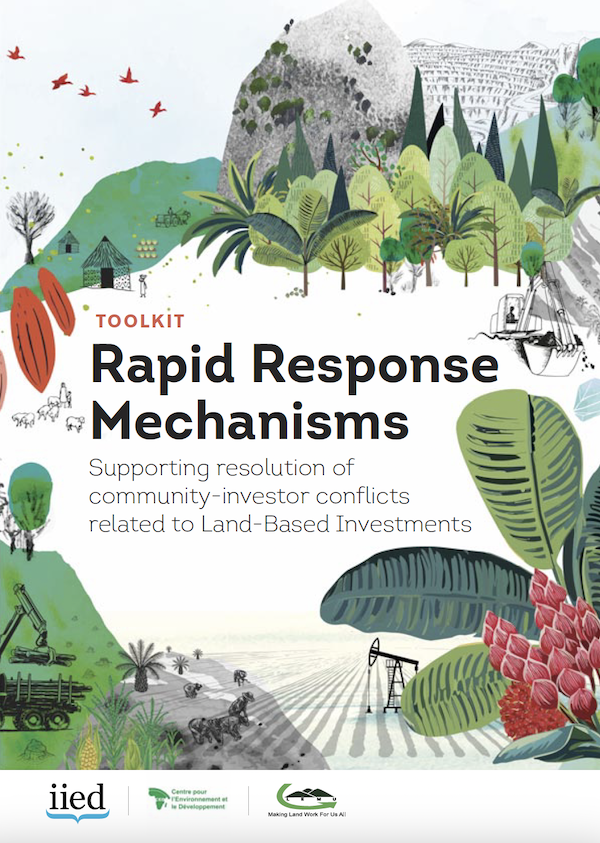Participatory and Integrated Land Use Planning: Training Manual
The aim of this training manual is to enhance the capacity and knowledge of technical experts tasked with capacity building to appraise/implement PILUP(Participatory and Integrated Land Use Planning) project in their respective implementation areas. The training material aims to provide participants with a step-by-step guide and instructions on how to prepare and implement PILUP at federal, regional and local level. It provides practical information supported by examples from a wide variety of situations.










